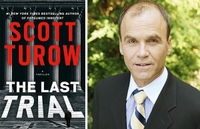Is there anything new to say about whether the death penalty should be abolished? It turns out there is. Bestselling author Turow (Reversible Errors) has some useful insights into this fiercely debated subject, based on his experiences as a prosecutor and, in his postprosecutorial years, working on behalf of death-row inmates, and his two years on Illinois's Commission on Capital Punishment, charged by the former Gov. George Ryan with examining how the death penalty might be more fairly administered. This is a sober and elegantly concise examination of a complex, fraught topic by an admitted "agnostic." His views veering one way and then the other, Turow shares his back-and-forth reasoning as he carefully discusses each issue, from the possible execution of an innocent person (a serious danger) to whether execution is a deterrent (it's not). Perhaps most illuminating are Turow's thoughts on victims' rights (which he says must be weighed against the needs of the community); on what to do with "the worst of the worst" (he visits a maximum security prison to meet multiple-murderer Henry Brison, who, Turow says, "most closely resembles... Hannibal Lecter"); and the question of what he calls "moral proportion," the notion that execution is meant to restore moral balance, which, he says, requires an "unfailingly accurate" system of justice. This measured weighing of the facts will be most valuable to those who, like Turow, are on the fence—they will find an invaluable, objective look at both sides of this critical but highly charged debate. (Oct.)


